Ed Crossing All Limits, In a step that has shaken the national debate, the Supreme Court of India has recently been dubbed in the ₹ 1,000 crore liquor scam in the ₹ 1,000 crore liquor scam in the Enforcement Directorate (ED) Money-Laundering investigation at Tamil Nadu State Marketing Corporation (TASMAC). The decision has become a political and legal flashpoint, which raises important questions about the federal structure, judicial inspection and expansion of ED in Indian states. The center of the storm has now-viral phrases: Ed Crossing All Limits. Read More…
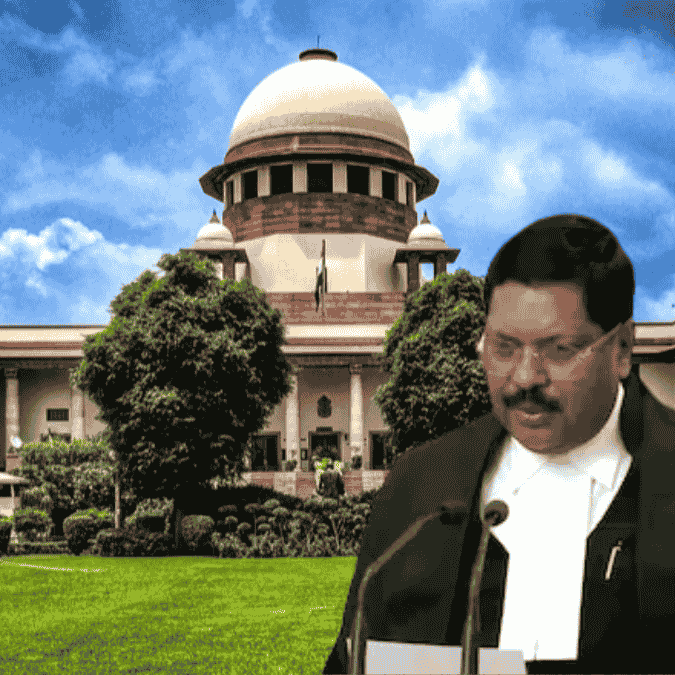
ED Crossing All Limits, What is TASMAC and Why Is It in the News?
Tasmac is a monopoly operated by the state that handles the sale of wholesale and retail liquor in Tamil Nadu. It has been criticized for long -term disabilities, lack of transparency and a tool of political money. However, it was not until it was a tune of ₹ 1,000 crore for allegations of corruption and money laundering that Tasmac became a central man in a high-profile legal battle. The ED raided and started investigating and took action. But the Supreme Court intervened, citing concerns about the constitutional overache.
The Allegations: ₹1,000 Crore Liquor Scam
The case against Tasmac revolves around alleged irregularities in purchasing and distribution. According to the ED, some contractors and private institutions were favored in exchange for kickback, and this entire cycle was made easily through shell companies and benami accounts. The alleged laundering of public funds has been called one of the biggest financial scams in recent times, and yet the Supreme Court’s order to live has changed dynamics.
After the Tamil Nadu government filed a petition, the court decided that the ED was interfering in state affairs without proper jurisdiction, effectively crossing all limits. The apex court agreed to stop the investigation, a decision that has attracted both applause and criticism across the country.
Supreme Court’s Stand: Shielding Federalism or Blocking Justice?
The Supreme Court’s stay on the ED investigation rests on a broad constitutional principle: the federal structure of India. The court said that the law and order including liquor regulation comes under the state list of the Constitution. The intervention of Ed without proper coordination with the state police or government was seen as a violation of this balance.
Critics of the decision argue that it sets a dangerous example. If central investigative agencies are stopped from looking at corruption cases within the institutions operated by the state, then how will the national level accountability be maintained? However, the defenders claim that this step was necessary to prevent the misuse of central power, confirming that the ED Crossing All Limits has become a growing concern for all boundaries.
Political Reactions: A Battle Beyond the Courtroom
The Supreme Court’s decision has led to fast political reactions. The ruling DMK in Tamil Nadu welcomed the decision as a win for the state’s autonomy. On the other hand, opposition parties and central leaders accused the DMK government of trying to hide behind the legal cover to avoid investigation.
Political spectrum leaders weigh some, praising the judiciary to maintain constitutional principles, while others claim that the decision indirectly protects corruption. Ed Crossing All Limits now symbolizes the alleged overage of central agencies.

ED’s Side of the Story
The ED, for its share, suggests that its functions were based on reliable intelligence and financial trails, which warned of a full scale investigation. According to agency sources, the money trail clearly indicated systemic laundering that involves state actors. The agency says that political narratives are being used to derail an important investigation.
“We follow the money. This is our job,” a senior ED officer said under not printing the name. “If the money trail leads to Tasmac, it does not matter whether it is a state unit or a private firm. Accountability should be ensured.”
However, with court intervention, the investigation is now limited. ED supporters argue that it can destroy investigative agencies and embrace corrupt practices. Once again, the cry of Ed Crossing All Limits becomes both a slogan and warning, depending on which side you are.
Legal Experts Weigh In
Legal scholars are divided on the verdict. Some say that the Supreme Court has done the right job by strengthening the need of central agencies within constitutional boundaries. Others argue that such migration may set back anti -corruption efforts and confuse the clarity of jurisdiction between the states and the Center.
Senior advocate Rajiv Dhawan remarked, “It is a reminder that Shakti should come with accountability. If the ED is actually crossing all borders, it is the duty of the judiciary to strengthen it.
Federalism vs. Central Overreach
The Indian Constitution underlines the clear separation of powers between the Center and the states. However, in the last few years, with the increasing number of ED Crossing All Limits investigations in especially opposition ruled states, allegations of political bias have intensified. The word ED Crossing All Limits is no longer just a criticism, but a cry for systemic introspection.
Familyism is not only a constitutional ideal, but there is a working need in diverse countries like India. When central agencies bypass the state machinery, it increases the alarm bells about the state’s rights erosion and imbalance in the dynamics of power.
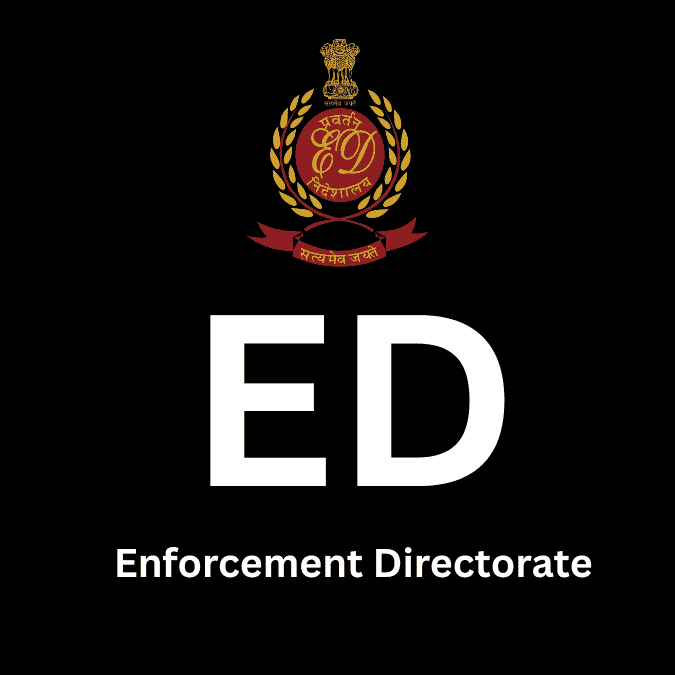
Media and Public Perception
Public opinion on the Tasmac case is deeply polarized. While some people see the move of the Supreme Court as a check on the ruling tendency, others believe that it disrupts the fight against corruption. Social media has exploded with hashtags such as #EDCrossingAllLimits and #TasmacScam, trending with each anti -stories.
The mainstream media channels have also taken various stances. Some see it as a clear case of political preservation by the judiciary, while others present it as an essential improvement to prevent misuse of investigative powers.
The Road Ahead, ED Crossing All Limits
With the ED temporarily restrained, Onas is now on the Tamil Nadu government to ensure transparency in Tasmac operation. Independent audit, public revelations and internal inquiries can lead to a long way in maintaining public belief.
At the same time, the ED may seek alternative legal measures to continue its investigation or seek alternative legal measures. The final decision will set an important example for future talks between central agencies and state administration.
The Historical Context: ED’s Growing Role and Controversies
The Enforcement Directorate was originally established to combat money laundering and economic crimes under the prevention of the Money Laundering Act (PMLA). However, over the years, the role of ED Crossing All Limits has expanded to areas beyond financial offenses that sometimes overlap with politically sensitive issues. This expansion has not been without controversy. Critics accused the agency of selective investigation targeting opposition-active states, while supporters say it is an essential tool in the fight against corruption and black money.
The Tasmac scam case reflects this growing tension. Historically, alcohol trade and regulation are strongly within the states, but the ED’s investigation indicates a more aggressive central intervention. The ED allegedly contains a complex web of transactions, which crosses the state boundaries, it certainly makes within the ED’s remit. However, the question is: Is this justification for bypassing state officials and constitutional protocols?
The stay order of the Supreme Court indicated a judicial inquiry on the increasing vigor of the ED Crossing All Limits. There has been a big debate on how far the central agencies should go while investigating the alleged state level corruption and whether their actions increase accountability or destabilize federal balance.
The Federalism Debate: Where Should the Line Be Drawn?
India’s federal system is unique, a complex division of powers between the states and states vested in the Constitution. Items related to “public orders” and “alcohol” fall under the state list, which means that the states have primary legislative and administrative rights over them. However, Financial Crime and Money Laundering Association are subjects, which give agencies such as constitutional approval to operate agencies.
The Tasmac case thus sits at a constitutional intersection: a state-controlled area is allegedly entangled in financial wrongdoing under investigation by a central agency. The intervention of the Supreme Court reiterated that even when federal agencies have jurisdiction, they should still respect the autonomy of the state governments and follow the fixed procedure including coordination with the state officials.
This decision is a reminder that federalism requires a delicate balance. Many more central overreach exposure transfers the federal system into unique, eradicate state’s rights and encourages political vengeance. In contrast, excessive state protectionism can mold corrupt practices and weaken national integrity.
Political Weaponization of Investigative Agencies: The ED Crossing All Limits in the Room
No one can discuss the phrase “Ed Crossing All Limits”, without accepting the political under continents that shaped the perceptions of ED investigation. Opposition parties have repeatedly accused the ED of having a equipment in the hands of the ruling party at the center to target political rivals.
In the TASMAC case, the DMK government in Tamil Nadu accused the ED investigation of being a politically motivated witch victim. On the other hand, central officials insisted that their work is based on purely reliable intelligence and financial data. The quarrel plays in courts and media homes, but leaves the public caught among competitive narratives.
Such political weapons, whether real or alleged, damage the credibility of anti -corruption bodies and reduce public belief in institutions. This takes the risk of changing the necessary investigation into political football, where accountability takes a backseat for biased benefits.
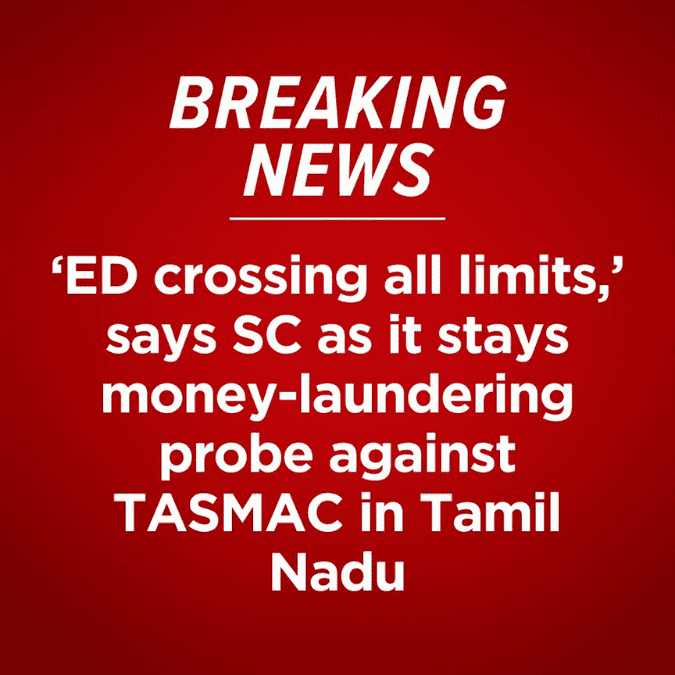
The Need for Reform: Building Institutional Trust
To prevent such crises in the future, experts argue that there is an immediate need for improvements in investigative agencies such as ED Crossing All Limits function. Greater transparency, standardized protocols for inter-agency coordination, and strong oversight mechanisms can reduce allegations of overache and political bias.
Some proposals include:
- Joint Work Force: Encouraging ED Crossing All Limits to work closely with the State Police and State Investigation Agencies on sensitive investigation to honor federal boundaries and improve coordination.
- Apparent jurisdiction guidelines: Defining clear conditions under which central agencies may interfere in state affairs to avoid turf wars and repetition of investigation.
- Judicial Inspection: Establishing independent judicial bodies or panels to oversee a sensitive investigation to ensure that they are free and free from political intervention.
- Parliamentary Review: Regular reports to Parliament on activities and conclusions of agencies like ED to increase transparency and accountability.
Applying such reforms can lead to a long way in the reconstruction of public belief and it may ensure that agencies serve as a tool of justice rather than political equipment.
Citizens’ Role: Staying Vigilant and Informed, ED Crossing All Limits
As the case comes up, citizens play an important role. Democracy thrives on informed partnership, public debate and taking power in the account. People need to follow careful development, seek many attitudes, and to be severely engaged with media narratives.
Awareness campaigns, public discussion and civil education can strengthen democratic flexibility on the importance of federalism and independent institutions. Only through active citizen engagement, India can ensure that phrases such as “Ed Crossing All Limits” become calls for institutional improvement rather than symbols of laxity.
Conclusion: A Turning Point for Indian Democracy?
The Tasmac case is just more than a liquor scam; It is a test of India’s democratic values, legal structures and political maturity. Ed phrases crossing all borders have come to represent the delicate balance between the urgency and constitutional justification.
Whether you see the intervention of the Supreme Court as justice or judicial overlapping, one thing is clear: India stands at an intersection. The options made today will shape the future of federalism, law enforcement and political accountability in the country.
As the legal battle comes out, citizens should be informed, demand transparency, and most importantly, the spirit of democracy should be maintained. Because in the end, it is not only about Tasmac or ED. This is about the kind of nation that we aspire to be.
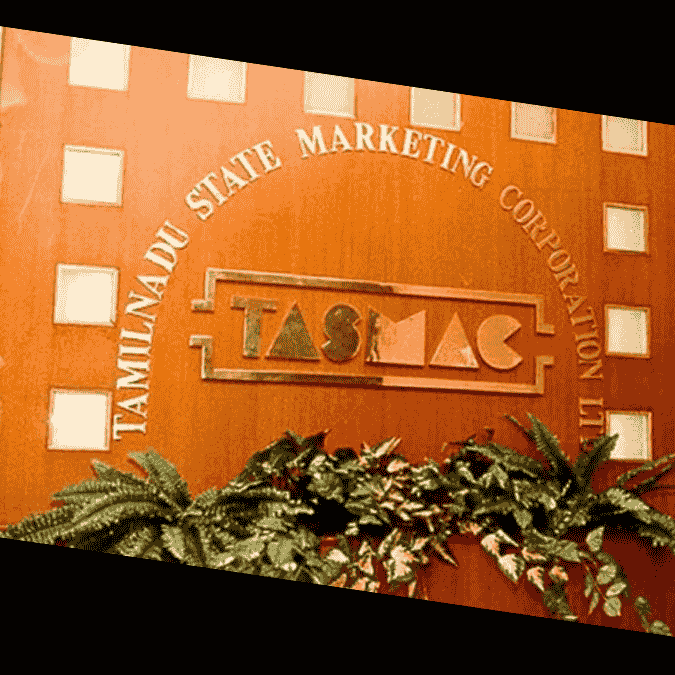
FAQ: Understanding the “ED Crossing All Limits” Controversy in the ₹1,000 Crore TASMAC Scam
1. What does the phrase “ED Crossing All Limits” mean in the context of the TASMAC scam?
The phrase “ED Crossing All Limits” has become a popular slogan symbolizing concerns over the Enforcement Directorate’s (ED) investigation into the ₹1,000 crore TASMAC liquor scam. It refers to the Supreme Court’s criticism and temporary stay on the ED’s probe, which was seen as an overreach into the jurisdiction of the Tamil Nadu state government. The court highlighted that the ED, a central agency, had crossed constitutional boundaries by interfering without proper coordination with state authorities, thereby “crossing all limits” of its jurisdiction.
2. Why did the Supreme Court intervene in the ED investigation of the TASMAC scam?
The Supreme Court stepped in after the Tamil Nadu government filed a petition against the ED’s probe, citing federalism concerns. The court emphasized that law and order, including liquor regulation, fall under the state list in India’s Constitution. The ED’s unilateral investigation without state government coordination was ruled as exceeding its jurisdiction, thereby threatening the delicate balance of power between the Center and the states. This judicial intervention led to the phrase “ED Crossing All Limits” gaining prominence.
3. What are the main allegations in the ₹1,000 crore TASMAC liquor scam?
The scam involves alleged corruption and money laundering through irregularities in liquor procurement and distribution by TASMAC, Tamil Nadu’s state-run liquor monopoly. The ED Crossing All Limits alleges that certain contractors and private entities were favored in exchange for kickbacks, using shell companies and benami accounts to launder large sums of money. The case is considered one of the biggest financial scandals involving state-run liquor operations.
4. How has the phrase “ED Crossing All Limits” affected political and public discourse?
ED Crossing All Limits, The phrase has become a flashpoint in national debates on federalism and central agency overreach. Politically, the ruling DMK in Tamil Nadu welcomed the Supreme Court’s ruling as a defense of state autonomy, while opposition parties accused the state government of shielding itself from investigation. Public opinion is polarized; some view the Supreme Court’s order as a necessary check on central power, whereas others see it as an obstacle to fighting corruption.
5. What is the Enforcement Directorate’s response to the accusations of “ED crossing all limits”?
The ED maintains that its investigation is based on credible intelligence and financial evidence pointing to large-scale money laundering. Agency officials argue that their mandate is to follow the money trail irrespective of political or state boundaries. The ED Crossing All Limits sees the Supreme Court’s stay order as a hindrance to accountability and warns that limiting their powers could allow corrupt practices to flourish unchecked.
6. What are the implications of the “ED Crossing All Limits” ruling for India’s federal system?
The ruling highlights the ongoing tension between protecting state autonomy and ensuring national accountability in corruption cases. It reinforces that central agencies like the ED must respect constitutional boundaries and coordinate with state governments when investigating state matters. The decision serves as a reminder of the need to maintain balance in India’s federal structure while addressing corruption effectively.
7. What reforms have experts suggested to address issues raised by the “ED Crossing All Limits” controversy?
Legal and governance experts recommend several reforms, including:
- Closer coordination between central agencies like the ED Crossing All Limits and state police forces.
- Clear jurisdictional guidelines to define when and how central agencies can intervene in state affairs.
- Independent judicial oversight of sensitive investigations.
- Parliamentary reviews to increase transparency and reduce allegations of political misuse.
These measures aim to restore public trust and ensure investigative agencies act within constitutional limits while effectively combating corruption.
8. How can citizens engage with the ongoing debate about “ED Crossing All Limits”?
Citizens play a vital role by staying informed, following developments critically, and participating in public discourse. Awareness campaigns and civic education can help people understand the importance of federalism, judicial independence, and transparent investigations. Active public engagement ensures that phrases like “ED Crossing All Limits” lead to constructive reforms rather than political polarization.
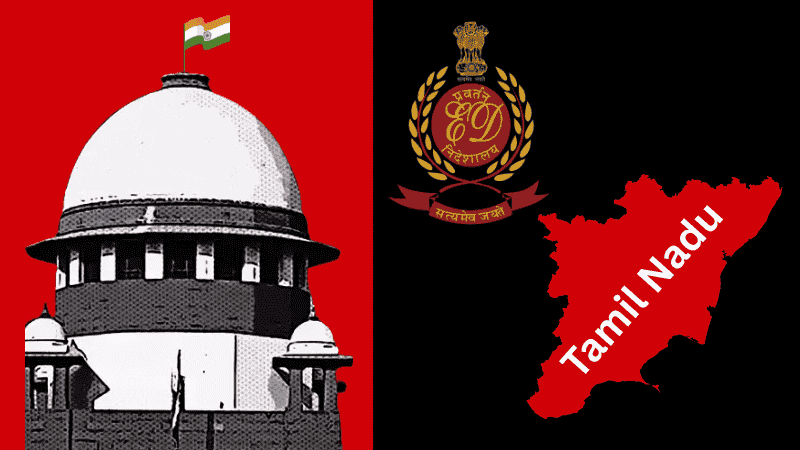
Leave a Reply